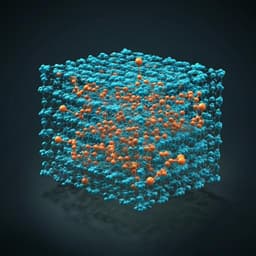
Engineering and Technology
Control of zeolite framework flexibility for ultra-selective carbon dioxide separation
P. Du, Y. Zhang, et al.
Discover the groundbreaking TMCT approach for creating ultra-selective zeolite membranes for CO₂/CH₄ separation, as conducted by Peng Du, Yuting Zhang, Xuerui Wang, Stefano Canossa, Zhou Hong, Gwilherm Nénert, Wanqin Jin, and Xuehong Gu. This innovative method achieved remarkable selectivity and permeance, paving the way for practical applications of all-silica zeolite membranes.
Related Publications
Explore these studies to deepen your understanding of the subject.







